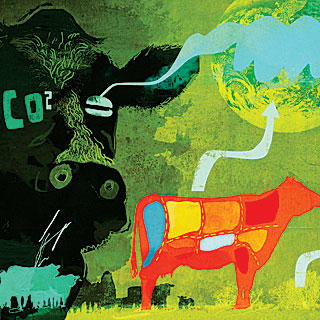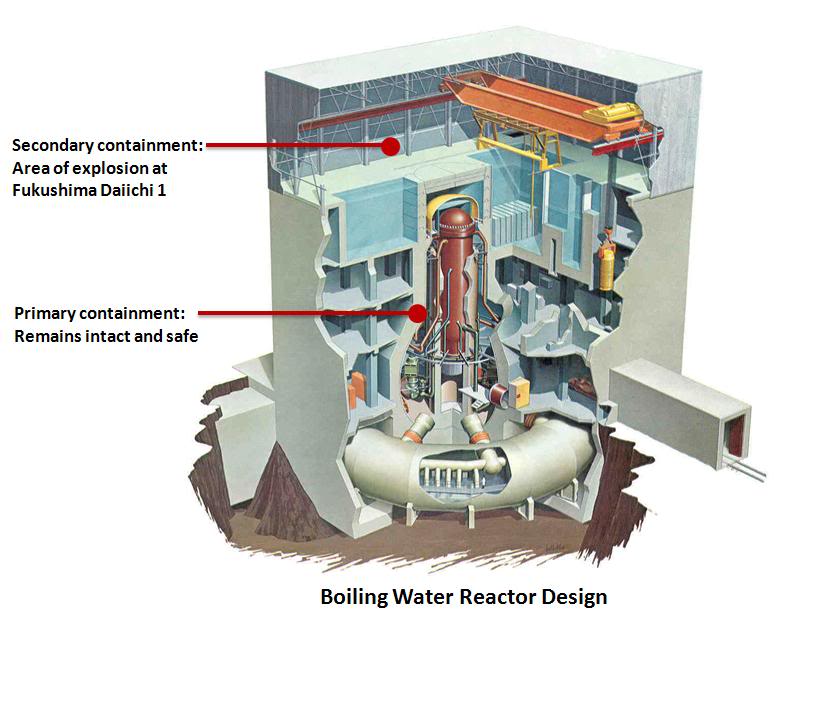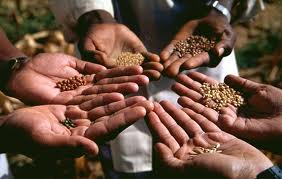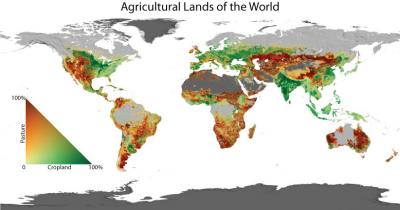Guest Post by Geoff Russell. Geoff is a mathematician and computer programmer and is a member of Animal Liberation SA. His recently published book is CSIRO Perfidy. His previous article on BNC was: Feeding the billions on a hotter planet (Part III).
He also wrote a brilliant recent piece for The Punch: Fukushima was no disaster, no matter how you spin it
——————
 IPCC calls to reduce meat consumption
IPCC calls to reduce meat consumption
Back in 2008, head of the IPCC Rajendra Pachauri told the world to eat less meat because of its large greenhouse footprint.
At about the same time the National Health and Medical Research Council appointed a committee to update Australia’s Dietary Guidelines … last issued in 2003. The preface from the 2003 document is clear:
“The Australian Food and Nutrition Policy is based on the principles of good nutrition, ecological sustainability and equity. This third edition of the Dietary Guidelines for Australian Adults is consistent with these principles. The food system must be economically viable and the quality and integrity of the environment must be maintained. In this context, among the important considerations are conservation of scarce resources such as topsoil, water and fossil fuel energy and problems such as salinity.”
The Terms of Reference give no instructions about what the committee should do other than to update the documents with the best available science. Environmental issues were clearly worthy of lip-service in 2003, if nothing else. Any reasonable update to the 2003 document should see those issues front and center.
Our impacts on the climate will flow on into most other environmental issues, whether we are concerned with other species, or more narrowly focused on the habitability of the planet for our own. If food choices have a significant impact on climate forcings, then documenting and explaining the extent of those impacts to the public should have been front and centre in the workings of this committee. In addition to the head of the IPCC, no lesser scientific authority than NASA climate scientist James Hansen said in 2009:
If you eat further down on the food chain rather than animals, which have produced many greenhouse gases, and used much energy in the process of growing that meat, you can actually make a bigger contribution in that way than just about anything. So that, in terms of individual action, is perhaps the best thing you can do.
He made an equivalent statement to me in 2008 and advised that he was changing his own diet and was “80-90% vegetarian“.
We shall see later that Hansen’s claim is easily supported.
Continue reading
 Before I write a scientific paper, I always try to identify: (1) my main message [MM], in 25 words or less, and (2) my target audience [TA]. Doing this helps focus the ‘story’ of the manuscript on a key point. Papers that try to present multiple messages are typically confusing and/or too long for busy researchers to read. It also dictates the background and specialist terminology that the reader might be safely assumed to understand, as well as guiding the choice of journal that I will submit to. For instance, a paper written for Nature requires more general context setting than one sent to Wildlife Research.
Before I write a scientific paper, I always try to identify: (1) my main message [MM], in 25 words or less, and (2) my target audience [TA]. Doing this helps focus the ‘story’ of the manuscript on a key point. Papers that try to present multiple messages are typically confusing and/or too long for busy researchers to read. It also dictates the background and specialist terminology that the reader might be safely assumed to understand, as well as guiding the choice of journal that I will submit to. For instance, a paper written for Nature requires more general context setting than one sent to Wildlife Research. The main message changed because I became progressively more interested in educating people on practical solutions to the problems of global change, rather than preaching doom-and-gloom. This shift in purpose was not because I don’t still consider the impacts of climate change to be incredibly serious and the evidence (ever increasingly) compelling — I do! It’s rather that I found the generic message of: “This is really bad, we must do something!” to be ineffectual, unappealing, and frankly, depressing. Besides, there are other sites that
The main message changed because I became progressively more interested in educating people on practical solutions to the problems of global change, rather than preaching doom-and-gloom. This shift in purpose was not because I don’t still consider the impacts of climate change to be incredibly serious and the evidence (ever increasingly) compelling — I do! It’s rather that I found the generic message of: “This is really bad, we must do something!” to be ineffectual, unappealing, and frankly, depressing. Besides, there are other sites that 

 Guest Post by
Guest Post by 